Lesson Plan Samples
Search*

 Looking for something specific?
Looking for something specific?
Browse*
Go to:
- Unit 1: Foundations of American Democracy
- Unit 2: Interactions Among Branches of Government
- Unit 3: Civil Liberties and Civil Rights
- Unit 4: American Political Ideologies and Beliefs
- Unit 5: Political Participation
- Exam Skills
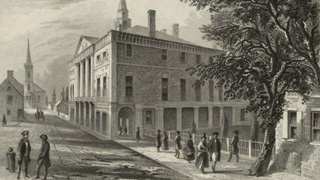
Unit 1: Foundations of American Democracy
Topic 1.1: Ideals of Democracy
Topic 1.3: Government Power and Individual Rights
Topic 1.4: Challenges of the Articles of Confederation (Primary Source Analysis)
Topic 1.4: Challenges of the Articles of Confederation (Shay’s Rebellion)
Topic 1.5: Ratification of the U.S. Constitution (The Great Connecticut Compromise)
Topic 1.6: Principles of American Government
Topic 1.7 Relationship Between the States and Federal Government
Topic 1.8: Constitutional Interpretations of Federalism (McCulloch v. Madison)
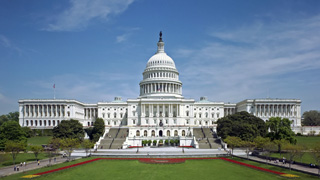
Unit 2: Interactions Among Branches of Government
Topic 2.1: Congress, The Senate, and the House of Representatives
Topic 2.2: Congressional Behavior (Structures, Powers, and Functions of Congress)
Topic 2.3 Congressional Behavior
Topic 2.4: Roles and Powers of the President
Topic 2.5: Checks on the Presidency
Topic 2.6: Expansion of Presidential Power
Topic 2.7: Presidential Communication
Topic 2.9: Legitimacy of the Judicial Branch
Topic 2.10: The Court in Action (Brown v. Board of Education)
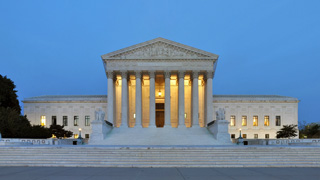
Unit 3: Civil Liberties and Civil Rights
Topic 3.2 First Amendment: Freedom of Religion (Public Education)
Topic 3.2: First Amendment: Freedom of Religion (Establishment Clause)
Topic 3.3: First Amendment, Freedom of Speech
Topic 3.4: First Amendment, Freedom of the Press
Topic 3.5: Second Amendment: Right to Bear Arms
Topic 3.6: Evaluating Public Opinion Data (Government Metadata Collection)
Topic 3.7: Selective Incorporation
Topic 3.8: Amendments: Due Process and the Rights of the Accused
Topic 3.9: Amendments: Due Process and the Right to Privacy
Topic 3.10: Social Movements and Equal Protection
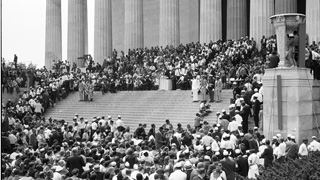
Unit 4: American Political Ideologies and Beliefs
Topic 4.1: American Attitudes About Government and Politics
Topic 4.2: Political Socialization (Immigration)
Topic 4.3: Changes in Ideology
Topic 4.4: Influence of Political Events on Ideology (Social Security)
Topic 4.5: Measuring Public Opinion
Topic 4.6: Evaluating Public Opinion Data
Topic 4.7: Ideologies of Political Parties
Topic 4.8: Ideology and Policy Making
Topic 4.9: Ideology and Economic Policy (Political Platforms)
Topic 4.9: Ideology and Economic Policy (The Minimum Wage)
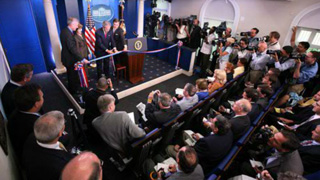
Unit 5: Political Participation
Topic 5.1: How and Why Political Parties Change and Adapt
Topic 5.1: Voting Rights and Models of Voting Behavior
Topic 5.2 : Voter Turnout (Quantitative Analysis)
Topic 5.3: Linkage Institutions (Political Parties)
Topic 5.5: Third-Party Politics
Topic 5.6: Interest Groups Influencing Policy Making (Lobbying)
Topic 5.6: Interest Groups Influencing Policy Making (Single Issue Lobbyists)
Topic 5.7: Groups Influencing Policy Outcomes
Topic 5.8: Voter Turnout (The Electoral College)
Topic 5.9: Congressional Elections
Topic 5.9: Congressional Elections

Exam Skills
Skills Practice: Homework Workload
Skills Practice: Real World Connections
Skills Practice: Bloom’s Taxonomy
Exam Skills: Mastering the Multiple-Choice Section
Exam Skills: Mastering the Multiple-Choice Section, Question Strategy
Exam Skills: Timing on the Multiple-Choice Section
Exam Skills: Concept Application, Quantitative Analysis, and SCOTUS Comparison
Exam Skills: Argument Essay (Scoring Guidelines)
Exam Skills: Argument Essay (Full Length Responses)
Exam Skills: Mastering the SCOTUS Comparison
Exam Skills: Mastering the Concept Application Essay
